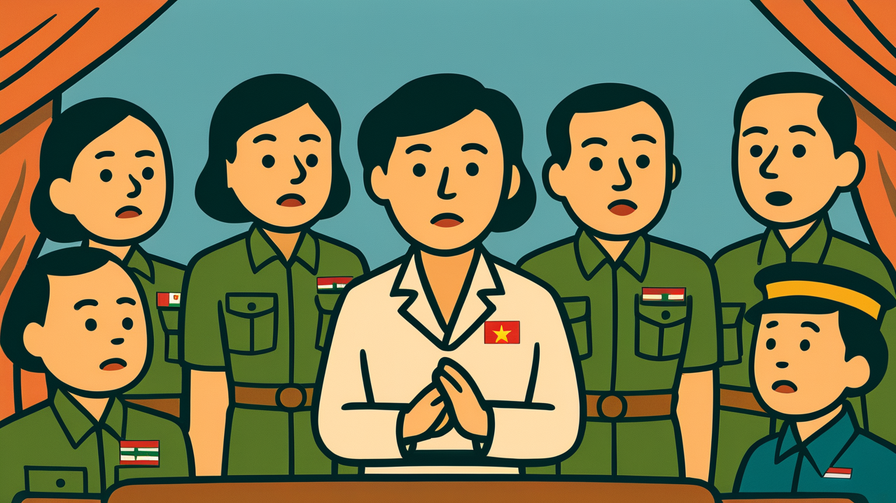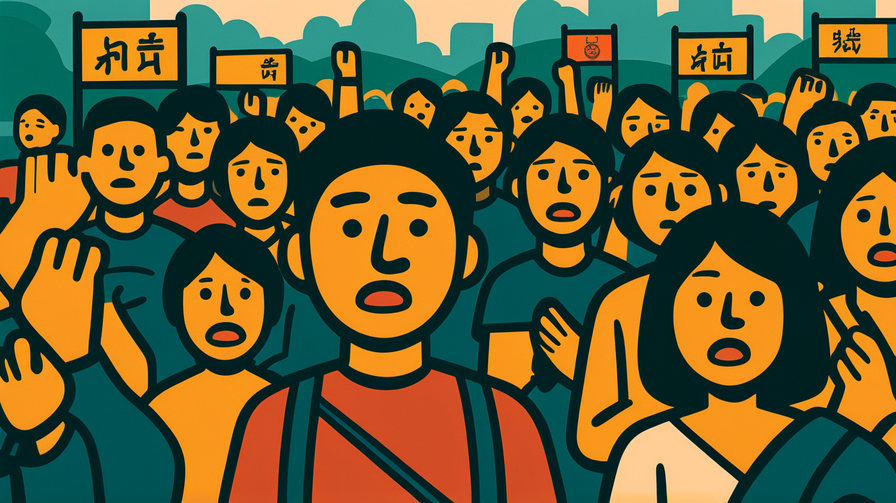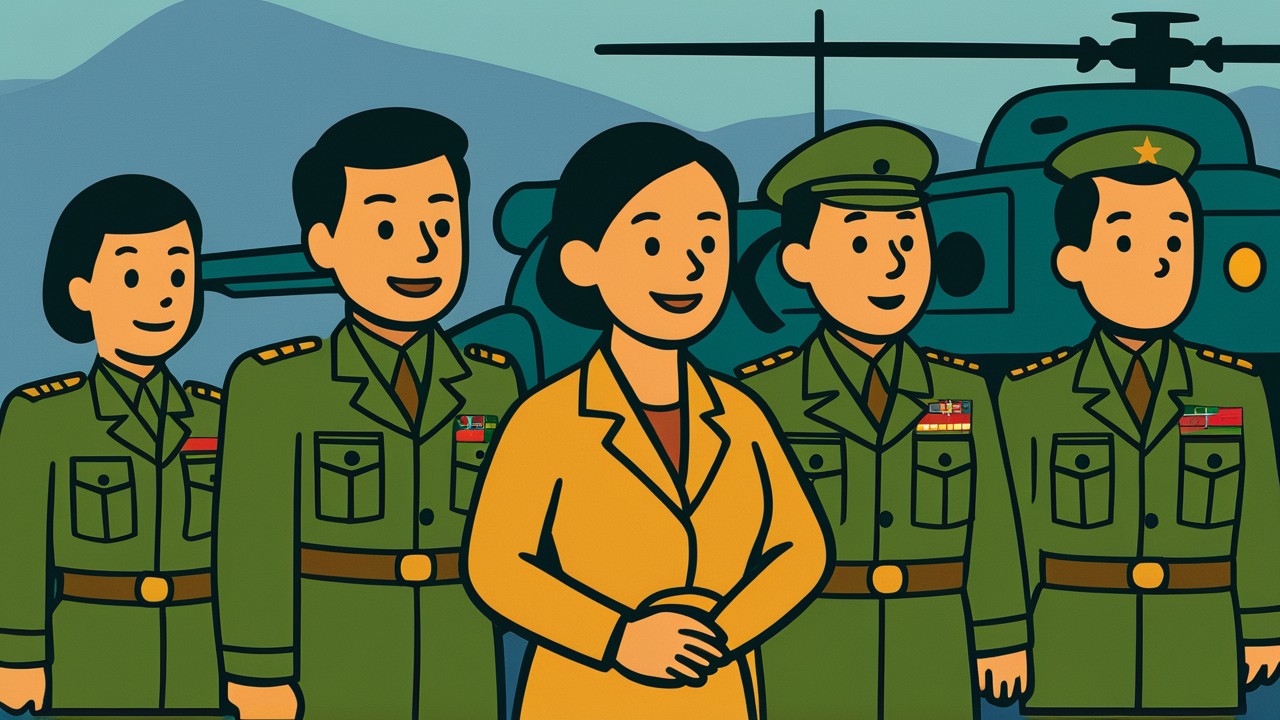[Disclaimer] This article is reconstructed based on information from external sources. Please verify the original source before referring to this content.
News Summary
The following content was published online. A translated summary is presented below. See the source for details.
Myanmar’s military government, known as the junta, has announced plans to hold elections in 2025 and promised to restore peace to the country. However, citizens across Myanmar express deep skepticism about these promises. Since seizing power in a coup on February 1, 2021, the military has faced widespread resistance from pro-democracy groups and ethnic armed organizations. The junta has repeatedly extended the state of emergency and postponed elections while battling opposition forces who now control significant portions of the country. Many Myanmar people point out that the military has broken similar promises in the past and continues to arrest political opponents, restrict freedoms, and conduct airstrikes on civilian areas. With ongoing civil war, millions displaced from their homes, and the economy in ruins, citizens see little reason to believe the military’s latest assurances about democratic transition or peace negotiations.
Source: The Irrawaddy via Global Voices
Our Commentary
Background and Context

To understand why Myanmar people don’t trust their military government, we need to look at the country’s history. Myanmar (formerly called Burma) gained independence from Britain in 1948 but has spent most of its history under military rule. The military, known as the Tatmadaw, first took power in 1962 and ruled with an iron fist for nearly 50 years.
A brief period of democracy began in 2011 when the military allowed some reforms and elections. Aung San Suu Kyi, a democracy activist who spent 15 years under house arrest, led her party to victory in 2015. However, the military kept control of key government positions and 25% of parliament seats. When her party won an even bigger victory in November 2020, the military claimed fraud (without evidence) and seized power again on February 1, 2021.
Expert Analysis
The military’s promises lack credibility because they’ve broken similar commitments repeatedly throughout Myanmar’s history. After the 1990 elections, when Aung San Suu Kyi’s party won overwhelmingly, the military simply refused to hand over power. They promised elections “when the country was stable” but kept delaying for 20 years.
Current resistance is unprecedented in its scale and unity. Unlike previous democracy movements mainly in cities, today’s opposition includes rural areas, ethnic minorities, and young people using both peaceful protests and armed resistance. The military has lost control of approximately 50% of Myanmar’s territory to opposition forces, making any election impossible to conduct fairly across the entire country.
Additional Data and Fact Reinforcement
The human cost of Myanmar’s crisis is staggering:
• Over 5,300 civilians killed by security forces since the coup
• More than 26,000 people arrested, including elected officials, activists, and journalists
• Approximately 3 million people displaced from their homes due to fighting
• The economy has shrunk by 30%, with the currency losing most of its value
• Over 18 million people need humanitarian assistance
The military controls major cities but faces daily attacks from resistance groups. Banks barely function, hospitals lack supplies, and many schools remain closed. Under these conditions, holding free and fair elections is practically impossible.
Related News
International pressure on Myanmar’s military continues to grow. The Association of Southeast Asian Nations (ASEAN) has excluded junta leaders from summit meetings since 2021. The United Nations has condemned the violence and called for the restoration of democracy. Many Western countries have imposed sanctions on military leaders and their businesses.
Meanwhile, some countries like China and Russia maintain relations with the junta, selling weapons and providing diplomatic support. This international division makes resolving Myanmar’s crisis more difficult, as the military can survive despite Western sanctions.
Summary

Myanmar people’s skepticism about the junta’s promises stems from decades of broken commitments and the current reality of widespread violence and military losses. The military’s talk of elections rings hollow when they continue arresting opponents, bombing villages, and losing territory to resistance forces. For Myanmar’s 55 million people, especially the young generation who tasted democracy, accepting military rule again seems impossible. Until the military shows genuine willingness to negotiate with opposition groups and stop violence against civilians, their promises of elections and peace will remain empty words that few Myanmar citizens believe.
Public Reaction
Social media posts from inside Myanmar, despite internet restrictions, show widespread mockery of the junta’s announcements. Citizens share memes comparing military promises to fairy tales and document daily violence that contradicts peace claims. Young people especially express determination to continue resistance, with slogans like “We will never kneel” and “Spring Revolution must win” appearing on walls and protest banners across the country.
Frequently Asked Questions
Q: What is a military junta?
A: A junta is a group of military officers who rule a country after taking power by force, usually through a coup. They govern without being elected and often suspend normal laws and democratic rights. Think of it as when the army decides to become the government without asking the people.
Q: Why did Myanmar’s military stage a coup in 2021?
A: The military claimed the November 2020 elections were fraudulent, but international observers said the elections were free and fair. The real reason appears to be that Aung San Suu Kyi’s party won such a huge victory (83% of seats) that the military feared losing its remaining power and privileges.
Q: What do Myanmar people want?
A: Most want a return to democratic government, release of political prisoners, and an end to military violence. Young people especially demand a federal democracy that gives ethnic minorities more autonomy. They’ve shown remarkable courage, knowing they risk arrest or death for opposing the military, because they believe their future depends on ending military rule.


